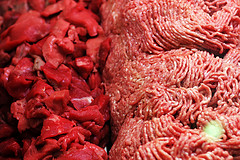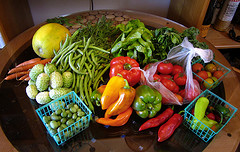Whether you actually read the labels on food or not, they exist to inform consumers of exactly what they’re about to eat. But that isn’t much help if you don’t understand why something is labeled a certain way in the first place. For example, the United States Department of Agriculture is planning on requiring beef that’s been mechanically tenderized to be labeled as such. Okay, great! But why should you care either way? [More]
food safety
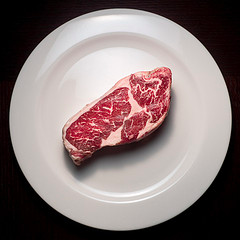
Where’s The Beef From?: U.S. Regulators To Propose New Meat Label Requirements
Because not knowing where your food comes from means that your food could’ve come from an unsavory source (horsemeat, anyone?), the United States is supposed to propose new rules this week that would require any meat products to be labeled with the basics: Where an animal was born, what it was fed and where it was slaughtered. [More]
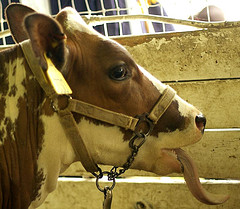
If People Want To Drink Raw Milk, Should Dairy Farmers Be Able To Sell It To Them?
Let’s say you’re a dairy farmer in oh, how about Wisconsin, and you’re thirsty. You can go out to one of your cows, milk it, and drink what comes out. But turning around and selling it to customers craving raw milk, well in most states, that’s illegal. While food safety regulations are of the utmost importance to consumers, should you be able to purchase products like raw milk and drink at your own risk? [More]

China Investigating Yum Brands Because If The Meat Label Says Mutton, It Should Be Mutton
UPDATE: Yum says its Little Sheep hotpot restaurants in China aren’t part of the tainted mutton scandal. A spokeswoman says in part: “There is no evidence, none whatsoever, of any adulterated product anywhere in our system.” That being said, the company is going to make extra sure of that, out of an “abundance of caution.” [More]

A Rodent In Sheep’s Clothing? China Cracks Down On Crime Ring Selling Rat As Mutton
We thought our European brethren had it bad with the horsemeat brouhaha, but over in China, the meat scandal bar has been raised: Police have made 904 arrests as part of a crackdown on a crime ring that was allegedly selling rats and other small mammals as mutton. Cue intense shudder. [More]

Aww, Shucks: Foodborne Illnesses Linked To Eating Raw Shellfish Are On The Rise
Now is probably not the time to be so selfish when eating shellfish: New numbers from the Centers for Disease Control and Prevention say food-borne illnesses related to eating raw shellfish are on the rise. And it’s not because such seafood is becoming less safe, it’s likely due to the fact that we can’t stop gobbling shellfish down in large quantities. [More]

Petition Asks Kraft To Stop Using Controversial Dyes In Its Macaroni & Cheese
For anyone who grew up in the United States of Cheese-Loving America, Kraft’s Macaroni & Cheese likely made at least a few appearances on the plate at mealtimes. Picky kids are often convinced to eat dinner just at the sight of the bright orange noodles in various shapes and it’s a better alternative than say, 30 packets of ketchup or whatever else they want to eat. But two of the yellow dyes used in the product have been banned in Europe, prompting two bloggers to petition Kraft to stop using those additives. [More]
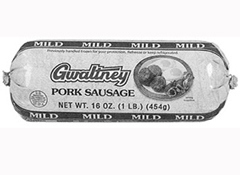
Tainted Sausages Prompt Recall And A Whole Lot Of Elbow Nudging
Connoisseurs of sausage know that the meat is much better without pieces of plastic gloves in it, which is why one company is recalling 38,000 pounds of sausage suspected to contain such foreign bits. The Gwaltney mild sausage rolls come in a one-pound package and may contain “small pieces of glove particles.” [More]

Keep These Food Safety Tips In Mind While Serving Snacks On Super Bowl Sunday
You might think that throwing some hot cheese chili dip and shrimp cocktail on the table is all fun and games, and well, it is. But you should still be careful while serving snacks this Super Bowl Sunday so as to prevent getting guests sick. There are a few tips to keep your food safe and make sure your guests leave happy and not clutching their stomachs. [More]
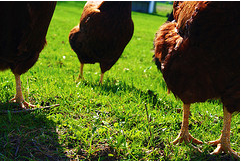
CDC Report Details Which Foods Make The Most People Sick, Tells Everyone To Stay Calm
First of all, the Centers for Disease Control and Prevention don’t want you to get all freaked out about the foods you eat, just because it’s releasing a report on the foods responsible for sickening the most people. It’s just an attempt to help regulators improve food safety. That being said, leafy greens like lettuce, spinach and kale are the most popular culprits, dairy products were responsible for the most hospitalizations and the most deaths were linked to poultry. [More]

Clean Bathrooms Are “Most Important Marketing Job” For Restaurants, Says Expert
Anyone who has sat through marathons of shows like Kitchen Nightmares and Restaurant: Impossible is fully versed on all the disgusting things possibly lurking under dining room booths and every other nook and cranny. One food service expert says too many restaurant operators ignore the mop and bucket to the detriment of their businesses. [More]

FDA Proposes New Food Safety Rules In Wake Of Peanut & Cantaloupe Contamination
Following more than a year of ugly headlines about recalls of possibly tainted peanuts, cantaloupes, leafy greens and other food products, the Food & Drug Administration has proposed new rules aimed at making the food on our plates safer to eat. [More]
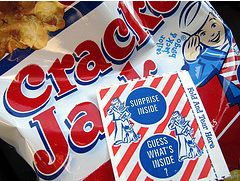
We Never Knew The World Needed Caffeinated Cracker Jacks, But Here They Come
If you’re the kind of person who hates wrapping your hands around a warm cup of invigorating coffee to get your daily dose of caffeine, how about tossing some caffeinated sugary caramel popcorn down your gullet? Frito-Lay is taking its beloved Cracker Jack brand and actually jacking it up with Cracker Jack’d, including two varieties called Power Bites that contain coffee. [More]
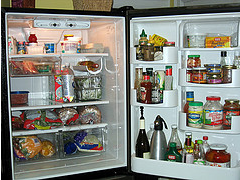
How Long Is Refrigerated Food Safe To Eat After The Power Goes Out?
So you made sure to attack the rapidly melting pints of ice cream in your freezer when the power went out, but what about all that other food in your fridge— if it isn’t of the melting variety, how long is it safe without being refrigerated? Well first of all, don’t employ the “I’m just gonna taste this to see if it’s okay” test, warns the United States Department of Agriculture in its handy guide to post-power loss food safety.
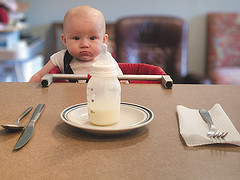
FDA Finally Decides That BPA Doesn’t Belong In Baby Bottles
Nearly four months after deciding not to listen to science or common sense and ban the use of controversial chemical bisphenol-A (you may call it BPA around your household) in food packaging, the Food and Drug Administration has decided that we should at least keep BPA out of the mouths of babies. [More]

When To Toss Your Old Ketchup And Mayo
I recently got a new refrigerator, and everyone knows what that means: the biennial excavating of the ancient condiments. How old is this salsa? How did I end up with three bottles of ketchup? And so on. Today, though, I learned that my standards have been woefully lax when deciding which condiments to keep around and which to toss. [More]
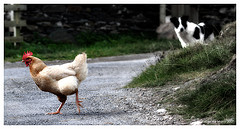
Illness In Dogs Traced To Chinese Chicken Jerky
The first thing that I do when looking at a bag of pet treats is turn it over and look for the country of origin. I’m not alone–and not paranoid, as it turns out. A few weeks ago, the Food and Drug Administration reminded American pet owners about unexplained and sometimes fatal illnesses related to chicken jerky treats imported from China. The FDA and its counterparts around the world have been warning consumers to be alert about jerky-related illnesses since 2007. [More]


